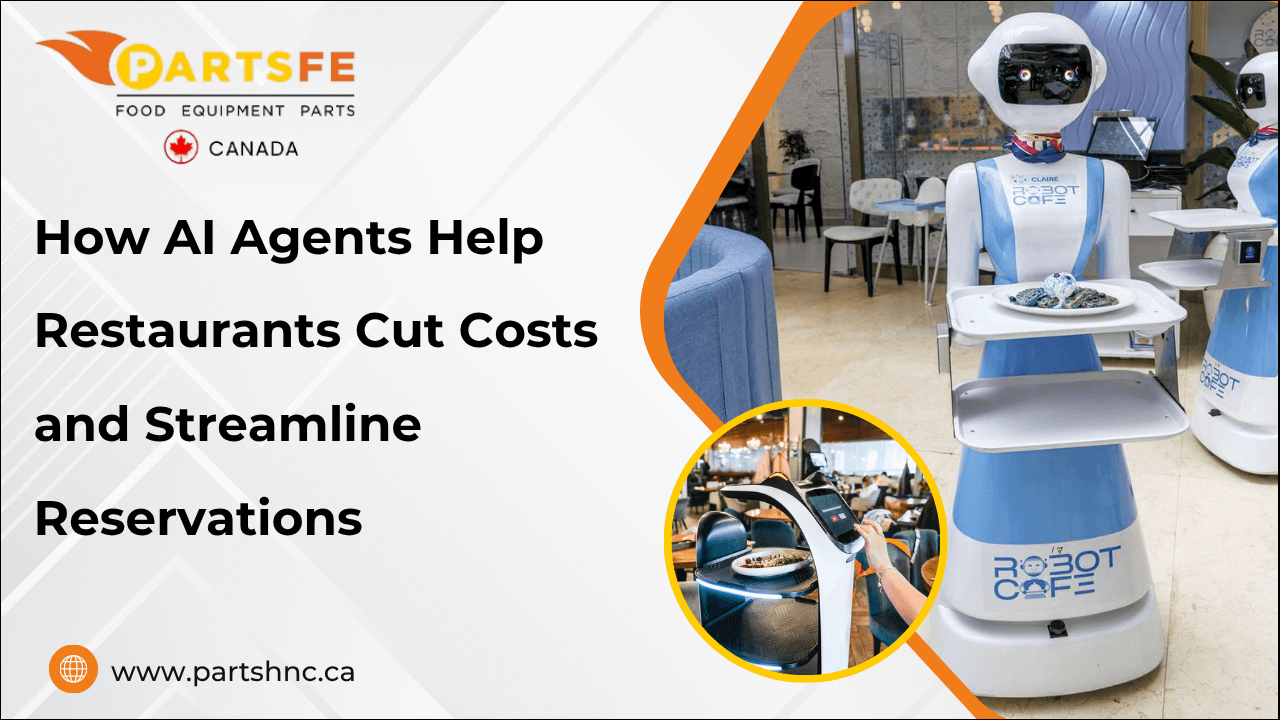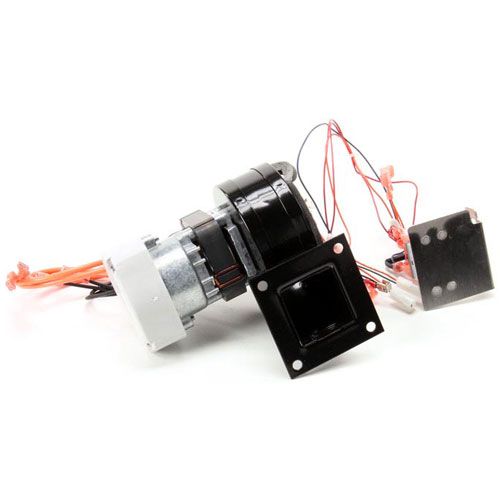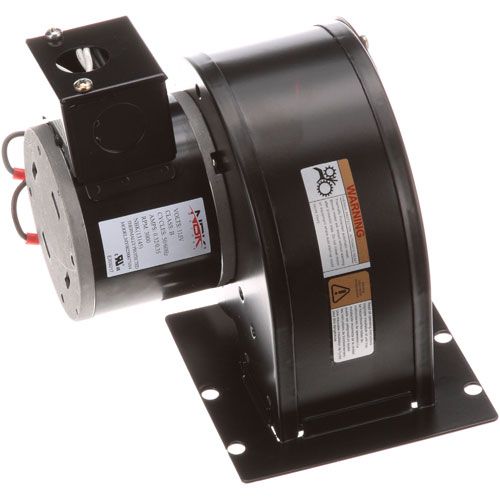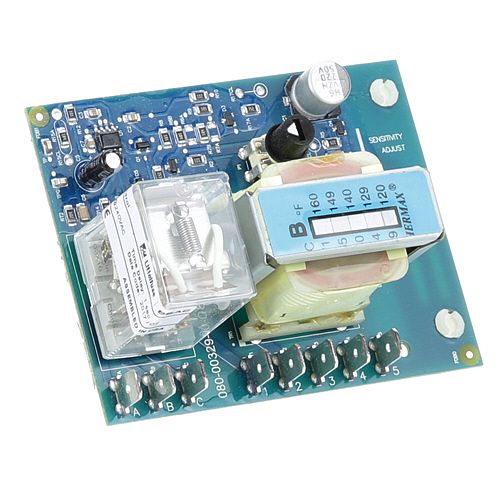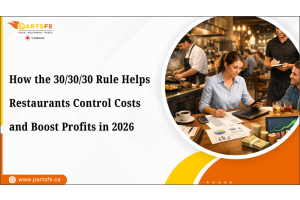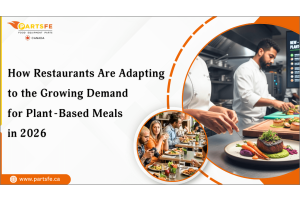How AI Agents Help Restaurants Cut Costs and Streamline Reservations
AI agents are revolutionizing the way restaurants manage their operations, particularly in terms of cost reduction and simplified reservations. By automating the booking process, these smart systems reduce staff workload, minimize errors, and ensure optimal table utilization. This not only helps restaurants avoid empty seats and lost revenue but also improves customer satisfaction with quicker and more accurate service. Beyond reservations, AI agents analyze customer data to predict busy periods, manage inventory efficiently, and reduce waste, all of which contribute to significant cost savings. In a fast-paced and competitive industry, adopting AI technology allows restaurants to operate more smoothly, save money, and deliver a better dining experience to their guests.
Understanding AI Agents in the Restaurant Industry
AI agents are advanced software systems created to automate and enhance multiple restaurant operations. Unlike simple automation tools, these agents use machine learning, natural language processing, and data analytics to handle complex tasks with little need for human involvement. Within the restaurant industry, AI agents have become vital for boosting efficiency, lowering expenses, and elevating the overall customer experience.
Key features of AI agents in restaurants include:
-
Automated Reservation Management: AI handles bookings in real-time, reducing errors and double bookings while offering 24/7 availability.
-
Customer Interaction: AI-powered chatbots communicate with customers for inquiries, reservations, menu recommendations, and feedback.
-
Demand Forecasting: AI forecasts peak times by examining past data, which aids with personnel and inventory optimization.
-
Inventory and Supply Chain Management: AI monitors stock levels, forecasts ingredient needs, and automates reordering to minimize waste and costs.
-
Personalized Marketing: AI increases loyalty by using consumer data to develop personalized dining experiences and targeted promotions.
-
Operational Efficiency: AI optimizes table seating, waitlists, and employee schedules to enhance workflow and maximize revenue.
Restaurant staff may concentrate on providing outstanding customer service and enhancing overall business performance by automating repetitive chores with the help of AI agents.
The Cost-Cutting Benefits of AI Agents in Restaurants
One of the main issues restaurants confront nowadays is cost management. AI agents offer powerful solutions to reduce expenses by optimizing labor, inventory, and procurement processes without sacrificing service quality.
AI-Powered Scheduling to Reduce Labor Costs
Labor is one of the biggest costs for any business. It can be difficult to schedule the appropriate quantity of workers at the appropriate times, particularly when demand varies because of events, seasonality, or weather variations.
AI agents analyze historical sales data, foot traffic patterns, and upcoming reservations to predict demand with high accuracy. Based on these insights, the system creates optimized staff schedules that prevent overstaffing or understaffing.
Benefits:
-
Reduced overtime costs
-
Improved employee satisfaction with fair scheduling
-
Enhanced customer service due to proper staffing
Reducing Food Waste with AI Inventory Management
Food waste is another major cost driver in the restaurant industry. While understocking might result in lost revenue, overstocking causes ingredients to deteriorate.
AI agents integrated with inventory management systems can forecast ingredient usage based on reservation data, menu popularity, and seasonal trends. They provide real-time inventory tracking and automated alerts for reordering, minimizing waste, and ensuring fresh ingredients are always available.
Benefits:
-
Lower food costs through precise ordering
-
Minimized spoilage and expired stock
-
Increased profitability with better inventory turnover
Streamlining Procurement and Supplier Management
By examining pricing patterns, delivery schedules, and quality indicators, AI can also improve supplier relationships. Some AI platforms negotiate better deals or recommend alternative suppliers based on cost-effectiveness and reliability.
Benefits:
-
Reduced procurement costs
-
Consistent ingredient quality
-
Improved supply chain efficiency
Check out our article on how digital menu boards are transforming restaurants to discover how this innovative technology enhances customer engagement and boosts operational efficiency.
Overcoming Challenges to Maximize Cost-Cutting and Efficiency with AI Agents
While AI agents offer tremendous potential to cut costs and streamline restaurant operations, many establishments face hurdles when adopting these technologies. The secret to maximizing AI's advantages is comprehending and resolving these issues.
Initial Investment and Implementation Costs
Investing up front in hardware, software, and employee training is frequently necessary when implementing AI solutions. For some restaurants, especially small or independent ones, this can feel daunting.
How to Overcome:
-
Choose Scalable Solutions: Select subscription-based AI platforms that fit various budget sizes and allow gradual adoption.
-
Start Small with Pilot Programs: Test AI tools on a small scale before committing to full deployment to minimize risk.
-
Utilize Vendor Support: Take advantage of training and onboarding services provided by AI vendors to reduce additional expenses.
-
Seek Financial Assistance: Examine any incentives or subsidies offered by the government to assist small firms in implementing new technologies.
Balancing Automation with Human Touch
Restaurants thrive on personal service and hospitality. There’s a concern that too much automation might alienate customers or reduce staff roles.
How to Overcome:
-
Automate Routine Tasks: Use AI for repetitive duties like reservations and inventory, freeing staff for personal guest interactions.
-
Maintain Hybrid Service Models: Combine AI efficiency with human hospitality to preserve the personal touch.
-
Human-AI Collaboration: The best results come from AI handling repetitive or data-heavy tasks while employees use their judgment and hospitality skills.
-
Monitor Customer Feedback: Regularly gather guest opinions to ensure service quality remains high.
Data Privacy and Security Concerns
AI systems require customer and operational data to function effectively, raising worries about privacy and compliance with regulations.
How to Overcome:
-
Partner with Compliant Vendors: Choose AI providers adhering to GDPR, CCPA, and other privacy regulations.
-
Implement Robust Data Policies: Establish stringent internal procedures and teach employees best practices for data security.
-
Use Encryption and Secure Channels: Use encryption methods to safeguard data while it's being stored and transported.
-
Maintain Transparency: Inform customers about data usage and obtain their consent when necessary.
Ensuring Seamless AI Agent Integration
For restaurants to fully benefit from AI agents, smooth integration with existing systems and workflows is crucial. Proper implementation ensures AI tools operate effectively and deliver real value without disrupting daily operations.
How to Overcome:
-
Choose Compatible AI Solutions: Select AI platforms that easily integrate with your current reservation, POS, and inventory systems to avoid technical conflicts.
-
Prioritize User-Friendly Interfaces: Opt for AI agents with intuitive dashboards and simple controls to minimize the learning curve for staff and management.
-
Plan for Gradual Rollout: Implement AI features step-by-step, starting with reservation management or inventory tracking, before expanding to other areas.
-
Monitor and Optimize Continuously: Regularly review AI agent performance and gather feedback to fine-tune settings and improve accuracy over time.
Leveraging AI Agents for Personalized Customer Experiences
AI agents enable restaurants to deliver personalized customer experiences by analyzing preferences, behavior, and past interactions. This allows for tailored recommendations, faster service, and improved guest satisfaction.
-
Data-Driven Insights: To learn about preferences, AI gathers and examines information from previous reservations, order histories, and consumer reviews.
-
Personalized Recommendations: Based on insights, AI suggests menu items tailored to dietary needs, favorite cuisines, or past orders.
-
Targeted Marketing Campaigns: AI segments customers by behavior and preferences, enabling restaurants to send customized promotions, discounts, and loyalty rewards.
-
Enhanced Customer Interaction: AI-powered chatbots provide instant, personalized responses to inquiries, manage reservations, and handle special requests seamlessly.
-
Improved Customer Retention: Personalized dining and communication experiences help build strong customer relationships, encouraging repeat visits.
-
Revenue Growth: AI agents boost sales and profitability by personalizing interactions with customers to increase their pleasure and loyalty.
Leveraging AI agents in this way allows restaurants to create memorable, individualized experiences that stand out in a crowded market.
Emerging AI Technologies Transforming Restaurant Operations
Artificial Intelligence in the restaurant industry is more than just automation it’s a powerful suite of advanced technologies that transform how restaurants operate, engage customers, and manage resources. Below are the core AI technologies driving this change and helping restaurants streamline their operations while enhancing the guest experience.
Machine Learning (ML)
Without human input, machine learning algorithms examine both past and current data to identify trends and arrive at wise decisions.
-
Forecasts are based on past sales, the day of the week, and the weather.
-
Recommends optimal staffing levels and shift scheduling.
-
Learns customer preferences to improve menu suggestions and marketing campaigns.
Business Impact: Reduces food waste, ensures optimal staffing levels, and delivers personalized customer experiences.
Natural Language Processing (NLP)
AI agents can comprehend, interpret, and react to human language thanks to natural language processing (NLP).
-
Powers AI chatbots for handling bookings, answering FAQs, and taking online orders.
-
Enhances voice-based ordering systems for drive-thrus and kiosks.
-
Understands customer sentiment in reviews and feedback.
Business Impact: Delivers seamless, human-like interactions that improve customer engagement and support.
Predictive Analytics
AI is used in predictive analytics to forecast future events from current data.
-
Forecasts ingredient demand and purchasing needs.
-
Anticipates customer behavior and preferences.
-
Optimizes marketing strategies by predicting campaign outcomes.
Business Impact: Improves inventory control, reduces over-ordering, and enhances operational planning.
Computer Vision (CV)
Computer Vision enables AI to "see" and analyze visual data from cameras and images.
-
Monitors food preparation for quality and consistency.
-
Tracks waste levels to help reduce spoilage.
-
Manages dine-in traffic and wait times through smart surveillance.
Business Impact: Ensures food safety, improves service speed, and reduces operational loss.
Robotic Process Automation (RPA)
Automating repetitive digital tasks across software platforms and systems is possible with RPA.
-
Automatically updates inventory databases.
-
Sends customer confirmation emails or loyalty updates.
-
Generates daily sales or performance reports.
Business Impact: Saves time, eliminates manual errors, and increases back-office efficiency.
Voice AI and Virtual Assistants
AI-powered voice systems are increasingly used in kitchens, drive-thrus, and self-service setups.
-
Accepts orders via voice at kiosks or over the phone.
-
Assists chefs with hands-free updates to digital recipe screens or timers.
-
Helps customers with interactive voice menus.
Business Impact: Speeds up order-taking, improves accuracy, and supports a contactless service experience.
Read our article on restaurant technology future predictions to explore how cutting-edge innovations like AI and automation are set to reshape the future of restaurant operations.
Final Thoughts
AI agents are no longer a futuristic concept as they are a practical, results-driven solution for modern restaurants seeking to cut costs and improve efficiency. From automating reservations and optimizing labor schedules to enhancing customer personalization and minimizing waste, these intelligent systems are transforming how restaurants operate daily. By adopting AI technologies strategically, restaurants can streamline operations, reduce unnecessary expenditures, and deliver faster, smarter, and more satisfying dining experiences. As the industry evolves, those who embrace AI early will be better positioned to stay competitive, agile, and profitable in an increasingly digital marketplace.
Want to keep your restaurant equipment running flawlessly? PartsFeCA offers essential parts for dishwashers, fryers, griddles & grills, ice machines, and ovens from top brands such as Henny Penny, Vulcan Hart, and Blodgett. PartsFeCA ensures fast service to meet all your kitchen repair needs.
FAQs
What tasks can AI agents automate in restaurant reservation systems?
AI agents can handle reservations, cancellations, and changes through phone, website, or apps 24/7. They also manage real-time waitlists and answer common guest questions automatically.
How do AI reservation systems reduce staffing costs and errors?
By automating routine tasks like booking management and guest communication, restaurants can operate efficiently with fewer front-of-house staff. This reduces labor costs and eliminates common human errors like double bookings or missed calls.
Can AI help minimize no-shows and improve booking reliability?
Yes, AI systems send automated reminders and confirmations to reduce no-shows. They also analyze past behaviors to flag risky bookings and help manage overbooking smartly.
How does AI optimize table allocation and capacity management?
AI uses guest data and traffic patterns to assign tables efficiently and minimize empty seats. It adjusts seating in real time to optimize turnover and guest flow.

